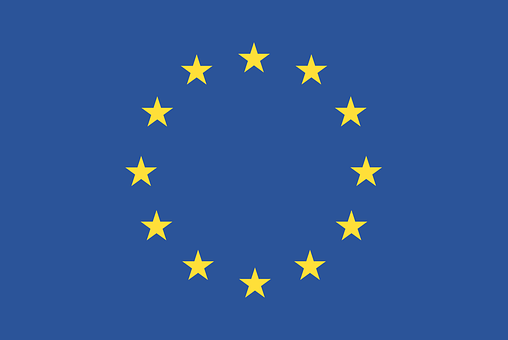Organic agriculture has been regulated in the European Union (EU) since 1991 when the first provisions laying down minimum standards for the internal market were adopted. Initially, the legal framework only covered plants and plant products. However, subsequent revisions were later introduced covering animals and animal products; it has been constantly evolving ever since to include more detailed rules on issues like labelling and imports, the extension of provisions to cover wine and aquaculture as well as establishing the now widely-recognised EU organic ‘leaf’ logo for pre-packed products.
Significant growth in both production and consumer demand in recent years has seen organic farming develop from a relatively anarchic sector into a still small, but well-established and professional industry. To keep up with such developments, the Commission’s 2014 proposal for a reform had as its main aims the need to ensure a level playing field between Member States, to improve consumer confidence, and to ensure clear rules and the removal of “regulatory obstacles” to the further growth of the sector in the EU.
The proposal thus had three principal areas of focus: strengthening and harmonising production rules, improving the trade regime, and improving the control system. The ‘harmonisation’ elements of the proposal related to tackling areas of inconsistency between Member States, including mixed farms and pesticide residues. Modifications were introduced to ensure a gradual move towards a compliance-based import regime and changes to the control system foresaw bringing all organic operators within the scope of official controls on the agri-food chain.
Even though the organic agri-food chain starts with seeds, the Commission’s proposal for reform lacked a specific vision for the seed sector and/or meaningful suggestions on how to actively promote the production and use of organic seed by breeders and farmers respectively.
[tweetshareinline tweet=”Even though the organic agri-food chain starts with seeds, the Commission’s proposal for reform lacked a specific vision for the seed sector.” username=”EuropeanSeed”]
There is a broad understanding within the sector that the availability of organic seed differs among species and that for certain species there is still insufficient organic seed available on the market; there are also too few incentives to encourage farmers, and there is limited will to enforce the use of organic seed. However, the Commission’s preparatory documents did not acknowledge this or include any data on the supply, demand, or flow of organic seed within the EU. No novel solutions were discussed to improve the situation, not even ‘traditional’ solutions, such as proposing transitional financial support to develop the sector.
The European Seed Association (ESA) has been active in its engagement with the Commission from the moment the first consultation procedure was launched, and suggested a clear and sensible way to both collect more data on organic seed and also to start phasing out derogations. It was underpinned by an EU-wide database, and a classification system with three categories based on the availability of organic seed that would have seen derogations prohibited for some species and sub species where there is already a wide availability of seed and phasing out others more gradually where there is still limited availability.
Unfortunately, the Commission did not take on board this more targeted approach in its proposal, and cited cost as an obstacle to the development of EU-wide data collection systems. ESA adapted by seeking to bring its suggestions to the political debate via the institutions of the European Parliament and Council of the EU (representing Member States) as they began their scrutiny of the proposal.
ESA’s dealings with the European Parliament were challenging. The Parliament’s team was led by Green MEP Martin Häusling who both refused to meet with ESA and failed to invite it to participate in a “stakeholder roundtable event” he had organised with the rest of the negotiating team. Due to limited engagement from the other main political groups on those issues relevant to the seed sector, the European Parliament eventually adopted its mandate based on a text which sought to challenge the seed marketing directives and introduce provisions which would have run counter to existing rules.
ESA’s dealings with the Member States in the Council were more successful, but still challenging. Most followed a consistent – and welcome – approach whereby whatever text was included on seeds, it should be compatible with the existing seed legislation. Unfortunately, a number of countries, keen to maintain national rules and practices, were quite preoccupied by some of the Commission’s ‘harmonisation’ proposals, and thus did not view seeds as a priority. It is for this reason that issues relevant to the seed sector were not fully addressed in the negotiations until close to the end.
Negotiators from the three institutions took almost 20 months, 18 formal “trilogue” negotiations, plus numerous bilateral and staff working group meetings before a political agreement was finally reached on 28 June 2017.
In addition to reflecting some of the Commission’s objectives on official controls and a stricter approach to imports, the final agreement also includes several provisions of particular relevance and importance to the seed and plant breeding sector.
The one positive outcome of the Parliament’s approach to seeds was that it put them higher up the agenda than the Commission had perhaps initially intended. Eventually this led to a broad agreement between the three institutions: there is a need to gather data on the availability of organic seeds, and to improve the supply and use of those organic seeds. This is reflected in Article 19a of the text which states that national databases where operators can list available organic seeds and plant reproductive material will be linked up via a central EU Commission website.
[tweetshareinline tweet=”There is a need to gather data on the availability of organic seeds, and to improve the supply and use of those organic seeds.” username=”EuropeanSeed”]
This would be the first time that such information would be made available at a centralised EU-level access point and is a highly welcome achievement. The establishment of an EU-wide database will allow operators to potentially reach a wider European market than perhaps was previously possible; it will also be easier to tell from the database whether or not organic seed is actually being used by farmers.
However, the new provisions will require efforts from the seed sector and Member States to be successful. The fact that it is not mandatory to list information in the national database may lead to an inaccurate – albeit more accurate than at present – representation of the market situation. Thus, the effectiveness of the database will depend on the willingness and capacity of seed producers to provide information, and on the efforts taken by Member States to encourage and facilitate the implementation of these measures by seed producers.
This collection and publication of data is linked to the derogations from the compulsory use of organic seeds in organic production. According to Article 35 of the agreement, these derogations would be phased out after 15 years; however, this period may be extended or reduced based on a report from the Commission (seven years into the period) which would assess the availability of organic seeds according to the information provided in the databases.
Establishing a timetable for the ending of derogations is a step in the right direction – it will hopefully lead to greater investment and innovation in the production of organic seed as companies will have greater assurances that there will be a future market for such seed. At the same time, the link between the information in the database and the end date for derogations is important – it means that the end date will be introduced based on data, rather than at a point in time that is politically arbitrary. This should prevent any disruption to the market, since derogations will only end when there is proof of sufficient quantity of organic seed. Thus, again, it is important for producers to actively update databases to ensure a true reflection of the market situation.
Derogations will need to be authorised on a case-by-case basis by national competent authorities, and only where operators have consulted the database and sufficient quality and/or quality of organic seed is not available for their particular needs. Whilst ESA still would have preferred to see its own proposed classification system phasing out derogations according to species be introduced – which would have allowed for an immediate end to unnecessary derogations – however, the adopted text will at least allow for an approach based on data, and it is our hope that the appropriate implementation of case-by-case authorisation of derogations will lead to a similar outcome in practice.
The agreed text also includes some remnants of the Parliament’s proposals relevant to the seed sector – namely provisions on the use of “organic heterogeneous material”, i.e. material that does not satisfy the variety definition in terms of uniformity, and a definition of an “organic variety suitable for organic production”.
In the case of the former, this started out as an exemption for “heterogeneous material” from the requirements of the seed marketing directives, despite the fact that there is an ongoing temporary experiment to assess whether or not this should be permitted. During negotiations, as part of a political compromise, this concept was narrowed down to only apply to “organic heterogeneous material” and significant safeguards were introduced limiting the production and marketing of such material, requiring the Commission to introduce further rules and detailed technical specifications on a species-by-species basis.
In the case of the latter, the Commission agreed to publish a political declaration outlining its intention to carry out a temporary experiment with the purpose of establishing criteria for the description of the characteristics of “organic varieties suitable for organic production” and the conditions under which they may be produced. Part of the definition restricting breeding methods was also removed in line with a deletion of the definition of “organic plant breeding” which, as originally phrased, was highly discriminatory and would have excluded many current and potential future breeding methods.
We do not anticipate that these additional provisions will place any immediate additional obligations on the seed sector, but they will need to be closely followed by ESA as they evolve and are given effect through subsequent executive acts by the Commission. Thus, ESA’s work will continue even after the text is finally adopted as we monitor these developments and provide input where necessary.
[tweetshareinline tweet=”We do not anticipate that these additional provisions will place any immediate additional obligations on the seed sector.” username=”EuropeanSeed”]
The final issue which was only resolved late last year concerned the text in Annex II outlining the rules for the production of plant reproductive material. The text included in the June agreement was originally unclear: it could have been interpreted as allowing for the status quo whereby organic seed is multiplied from untreated, non-organic basic seed; it could also have been interpreted as implying that organic seed can only be produced from organic basic seed.
The text’s lack of clarity could have potentially implied significant changes if it were interpreted incorrectly: if producers were required to produce certified organic seed from organic basic seed instead of untreated conventional basic seed, this would severely limit their ability to produce such seed, the resulting qualities would likely not meet the requirements of the seed marketing directives, and prices would likely rise so significantly that they would become prohibitive. However, ESA raised these concerns with the Commission, who were open to a dialogue on this issue and agreed that further clarity was required. The text was subsequently clarified to ensure that it permits a continuation of the status quo whereby organic seed is multiplied from untreated, non-organic basic seed.
Some of those involved in the negotiations hailed the agreement in June as a great success, though on paper the improvements do not necessarily justify the time and effort which went into this reform. Many of the Commission’s objectives were watered down by Member States keen to maintain the status quo and many of the technical improvements do not give MEPs in the Parliament much political capital to use at home with their farmers and consumers.
The final text was put to a vote of the Special Committee on Agriculture (SCA) on 20 November 2017, and a qualified majority of Member States voted in favour of the text. Following this positive vote, the European Parliament’s Committee on Agriculture held a vote in which a majority endorsed the text. The next step will be for final signoff by the full plenary of the European Parliament (all 751 MEPs) and by the national Agriculture Ministers at the AGRI-FISH Council meeting, both expected sometime in April 2018. Assuming these votes pass smoothly, the intention is for the new rules to apply from 1 January 2021.
For the seed sector, we will have a new regulation which does offer some improvements to the sector. ESA’s advocacy efforts and persistence paid off, as we succeeded in retaining those elements we supported, and removing most of the elements we did not! However, our work is not over: once the text is adopted, the challenge for ESA will be to closely monitor the implementation of the regulation, including important upcoming secondary acts, and to support ESA members where necessary. Hopefully, in the medium-term, when the databases have been built up, this information will serve to influence the next reform of the organic regulation, when we can perhaps finally expect some meaningful proposals for our sector.
Editor’s Note: Kate Wilson is the Public Affairs Manager at the European Seed Association (ESA), in Brussels, Belgium












